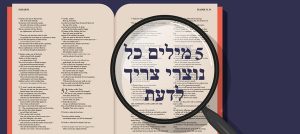
Shownotes
Welcome to Day 1564 of our Wisdom-Trek, and thank you for joining me.
This is Guthrie Chamberlain, Your Guide to Wisdom
Bible Study – Total Objectivity And The Weird – Meditation Monday
Welcome to Wisdom-Trek with Gramps! Wisdom is the final frontier in gaining true knowledge. Our mission is to create a legacy of wisdom, seek out discernment and insights, and boldly grow where few have chosen to grow before. Hello, my friend; this is Gramps; thanks for coming along on our journey to increase Wisdom and Create a Living Legacy Today is Day 1564 of our Trek, and it is time for Meditation Monday. Taking time to relax, refocus, and reprioritize our lives is crucial in order to create a living legacy. For you, it may just be time alone for quiet reflection. You may utilize structured meditation practices. In my life, Meditation includes reading and reflecting on God’s Word and in prayer. It is a time to renew my mind, refocus on what is most important, and making sure that I am nurturing my soul, mind, and body. As you come along with me on our trek each Meditation Monday, it is my hope and prayer that you, too, will experience a time for reflection and renewing of your mind.
We are continuing our series this week on Meditation Monday as we focus on Mastering Bible Study through a series of brief insights from Hebrew Scholar, Dr. Michael S. Heiser. Our current insights are focusing on accurately interpreting the Bible. Today let us meditate on:
Bible Study – Total Objectivity And The Weird
· Insight Fifty-Five: Total Objectivity in Bible Interpretation Is a Myth
Everybody likes to think they’re objective. We all want to believe we can render opinions or judgments wholly divorced from any external influence or personal bias. We don’t like the suspicion that we’ve failed to weigh all possibilities about what a passage might mean before landing somewhere. That would make it seem like our position on some interpretation point is somehow premature, careless, or unfair. We can cherish the thought, but it’s a delusion.
Absolute objectivity about anything we enjoy thinking about or are forced to consider is an impossible standard. We can’t hope to jettison altogether every past sight, conversation, or experience from our minds that might nudge our opinions in a particular direction. Even if we’re thinking about something or someone with which we have no prior experience, we have our own presuppositions. We weren’t born with those. They are the cumulative result of all our life experiences, primarily how we were raised as children.
Scholars aren’t immune to this struggle. Dr. Heiser recalls one day in graduate school; his professor lapsed into a mini-lecture on what it meant to be a scholar. One of his points was that “real” scholars approach the Bible with no biases or presumptions. Specifically, they bring no prior belief about the Bible to their analysis of the biblical text. Ideas like inspiration and anything else “confessional” had to be eliminated for the real scholarship to occur.
I appreciated the spirit of the advice. We ought not to filter what we see in the text through any theological grid. But I also had to shake my head. The absence of any religious or theological thought about the Bible is impossible but is a theological statement. The intellectual denial of the idea of inspiration (however defined) will indeed influence how we process the data we glean from the text.

The honest thing to do is to acknowledge the beliefs we have. Every Bible student needs to own up to the fact that they might “believe” something only because the thought was handed down to them. Being upfront with that possibility and letting people know we’re trying hard not to filter the Bible through our beliefs fosters accountability. We shouldn’t pretend we are immune from the experience we’ve acquired through past study or our interaction with others interested in the Bible. That’s a façade.
· Insight Fifty-Six: If It’s Weird, It’s Important

One of Dr. Heiser’s pet peeves with preaching and Bible teaching in the church is the propensity to skip odd or challenging passages in the Bible. This happens for several reasons.
Sometimes the person tasked with presenting Scripture presumes that the only passages truly ‘relevant’ for folks in the pew are those that have some transparent point of life application. That’s usually the byproduct of flawed Bible study, which in turn is often due to laziness. Passages that give us something to say after only a surface reading are good fodder for sermons.
At other times the fear of getting the interpretation wrong encourages pastors or teachers to bypass a passage. Some passages appear to have no coherent explanation and application. I understand that one, but you shouldn’t believe it. The solution involves a combination of the right tools and tenacity. Diligence is the friend, not the enemy, of the Bible student. It may take weeks, months, or longer to feel like you have a handle on a passage, but that shouldn’t matter.
Still, another reason is fear of discovery. For some Bible students, digging too deep into a passage might result in surrendering a belief they cherish. In my experience, this is more common than one would suppose. Fear of discovering something they believe may not be true prompts them to study something else.
Lastly, I’ve met all too many Bible students who don’t want to think about specific passages because they are “too weird.” Surprisingly, this fear-based response often concerns ideas the Bible affirms that are uncomfortable in a modern world. If the passage turns out to mean what it seems to say, it wouldn’t be rational. This fear is inconsistent, especially since some of the things Christians believe are far from what someone who dismisses the supernatural would consider reasonable.
I’m not suggesting that we can always be sure we’re interpreting strange or obtuse passages correctly. None of us is omniscient. Instead, I contend that every passage in Scripture merits our attention. In many instances, the strange and challenging passages are part of a greater idea that is theologically significant. We just don’t see it because we don’t share the writer’s ancient worldview. Dr. Heiser says that if it’s weird in his experience, it’s important—there is a purpose for every passage in the Bible. It’s our job to discover what it is.
Study this Book of Instruction continually. Meditate on it day and night so you will be sure to obey everything written in it. Only then will you prosper and succeed in all you do.
That is a wrap for today’s Meditation. Next week we will continue our trek on Meditation Monday as we take time to reflect on what is most important in creating our living legacy. Thank you for joining me on this trek called life. Encourage your friends and family to join us and then come along tomorrow for another day of ‘Wisdom-Trek, Creating a Legacy.’

If you would like to listen to any of the past 1563 daily treks or read the daily Journal, they are available at Wisdom-Trek.com. I encourage you to subscribe to Wisdom-Trek on your favorite podcast player so that each day will be downloaded to you automatically.
Thank you for allowing me to be your guide, mentor, and most importantly, I am your friend as I serve you through this Wisdom-Trek podcast and Journal.
As we take this Trek of life together, let us always:
- Live Abundantly (Fully)
- Love Unconditionally
- Listen Intentionally
- Learn Continuously
- Lend to others Generously
- Lead with Integrity
- Leave a Living Legacy Each Day
I am Guthrie Chamberlain….reminding you to ’Keep Moving Forward,’ ‘Enjoy your Journey,’ and ‘Create a Great Day…Everyday’! See you tomorrow!